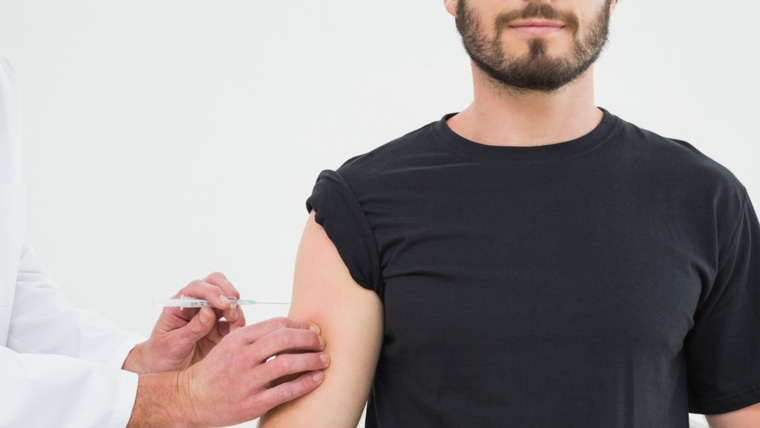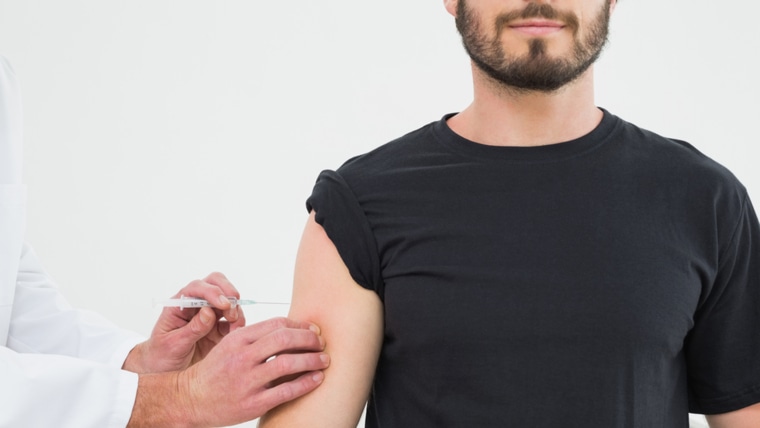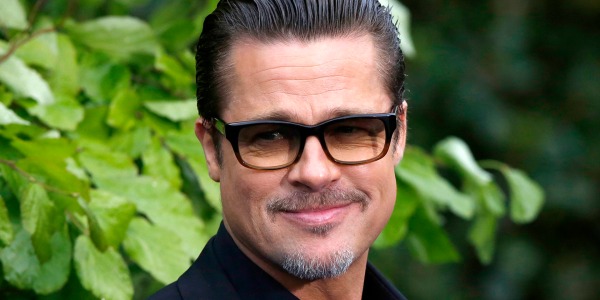Women know. Men rarely talk openly about their health. It can take a medical emergency to bring a man to the doctor.

Meredith Spidel’s 37-year-old husband “Dr. J” has a Ph.D. in microbiology, but it took a bad case of poison ivy to seek medical attention — the first doctor’s visit in their 13-year marriage.
“His eyes were almost completely swollen shut … and he couldn't see well enough to work — but he still insisted on driving himself,” said Spidel, 35, who writes the blog “Mom of the Year.”
As for yearly health screenings, forget it.
“He’s stubborn and very opinionated and also smart, so he doesn’t think he needs a doctor to tell him what to do,” she told TODAY.
Men, too, admit their folly.
“The smells of a doctor’s office, and the people running around in white coats makes me nervous,” said Mark Auerbach, a 64-year-old public relations professional from Massachusetts.
“So, if I'm not up to the stress, I postpone things,” Auberbach told TODAY. “I know I shouldn’t.”
Sound familiar? Men all over the world are growing their facial hair for “Movember,” —the charity that raises funds and awareness for men's health — but, beard schmeard, it's up to their loved ones to get them to important medical screenings.
Slideshow 22 photos
Famous men and their beards
“The guys may stay away but, the wives, girlfriends and mothers make sure they stay on the right path,” said Dr. Jacques Carter, an internist and men’s health specialist from Beth Israel Deaconess Medical Center in Boston. “Unless someone is pushing them, they don’t go.”
“When he asks what do you want for your birthday or Valentine’s Day, say, ‘Get that check-up,’’’ he told TODAY.
Ready to nudge him? Here are the screenings and check-ups men need throughout their lives:
For guys in their 20s:
- Get medical history and “baseline” data on blood pressure and cholesterol levels. If there is a family history, start diabetes testing.
- Go the dentist annually.
- Discuss safe sex. About 12,000 cancers (throat, anus, penis) associated with the human papillomavirus (HPV) occur in men each year, and a vaccine series is available, according to the Centers for Disease Control and Prevention. Other sexually transmitted diseases, including HIV/AIDS are on the rise, especially among young men. Reminder: There is an "ongoing, severe epidemic" of STDs in the U.S., according to the CDC.
- Talk about testicular cancer. The U.S. Preventive Services Task Force now recommends against performing an exam, but it is the most common cancer in men aged 15 to 34 years. While controversial, Carter says, “It’s a good thing to do your own screening once a month to look for lumps.”
- Develop a relationship with your doctor. Set a routine and develop “healthy habits for life.”
30s:
- Check for blood pressure and a lipid profile. Men over 34, should be tested for cholesterol every five years. Take a family history for hypertension, diabetes and colon cancer. In this age group, about 15 percent of men will have elevated blood pressure, according to Carter.
- Discuss eating habits and exercise. There is a national obesity epidemic, and as men move into their 30s, “they have families and have picked up some pounds.”
- Discuss sexual health. “Is everything working OK?” Depending on lifestyle and medical history, you may be screened for infections like syphilis, chlamydia, and HIV.
40s:
- Get screened for diabetes if you have a body mass index (BMI) greater than 25 and other risk factors.
- Start prostate cancer screening, if there is a family history. African-Americans are at 150 percent greater risk and have double the mortality rate as Caucasians. “Most men can wait until their 50s,” he said. “In the 40s, its mostly about education.”
- Update tetanus immunizations, every 10 years.
- Get an annual flu shot (universal immunization now recommended by the CDC).
50s:
- Get a colonoscopy. Excluding skin cancers, colon cancer is the #3 killer of men. Repeat every seven to 10 years, unless multiple polyps are found. If a colon scan is too icky, a new home test was just approved by the Food and Drug Administration.
- Get prostate cancer screening with a digital exam and PSA blood test. About 1 in 7 men will be diagnosed during his lifetime, according to the American Cancer Society.
- Check for cardiovascular disease risks: blood pressure (keep below 135/85), lipids (cholesterol, triglycerides) and diabetes. Discuss weight gain, smoking and alcohol risks. Check out the five steps men can take to avert a heart attack.
- Get an eye exam for glaucoma and a hearing test and continue every two years.
60s:
- If you have smoked more than a pack of cigarettes a year for 30 years or have quit within the last 15 years, get a chest CT scan, which can pick up lung cancer earlier, the CDC recommends.
- Discuss symptoms of stroke and heart attack.
- Walk, keep fit, preferably with weights to build muscle. Walking is the "superfood" of fitness, experts say. Osteoporosis poses a risk for millions of older men, according to the National Institutes of Health.
- Keep up prostate cancer screening. The 55 to 69 age group is “the sweet spot” for detection and aggressive treatment, according to Carter. Average age for detection is 66.
- Check your mental health ( important at all stages of life). Suicide is the 10th leading cause of death for all ages — 38,364 a year and rates are up among those aged 35 to 64, according to the CDC. “Men think a lot about prostate cancer and Viagra, but their emotional state is an issue,” said Carter. “Men are reluctant to admit they are depressed.”
Ready for 60? Be fit and'comfortable in your skin' like Al Roker

